Evan Roos: 'There Is No Hate Or Anything Between Us - Just Respect'
Evan Roos: 'There Is No Hate Or Anything Between Us - Just Respect'
It didn’t take long for the endearing Evan Roos to emit a mischievous grin when he pulled up a balcony chair to shoot the breeze with RugbyPass.
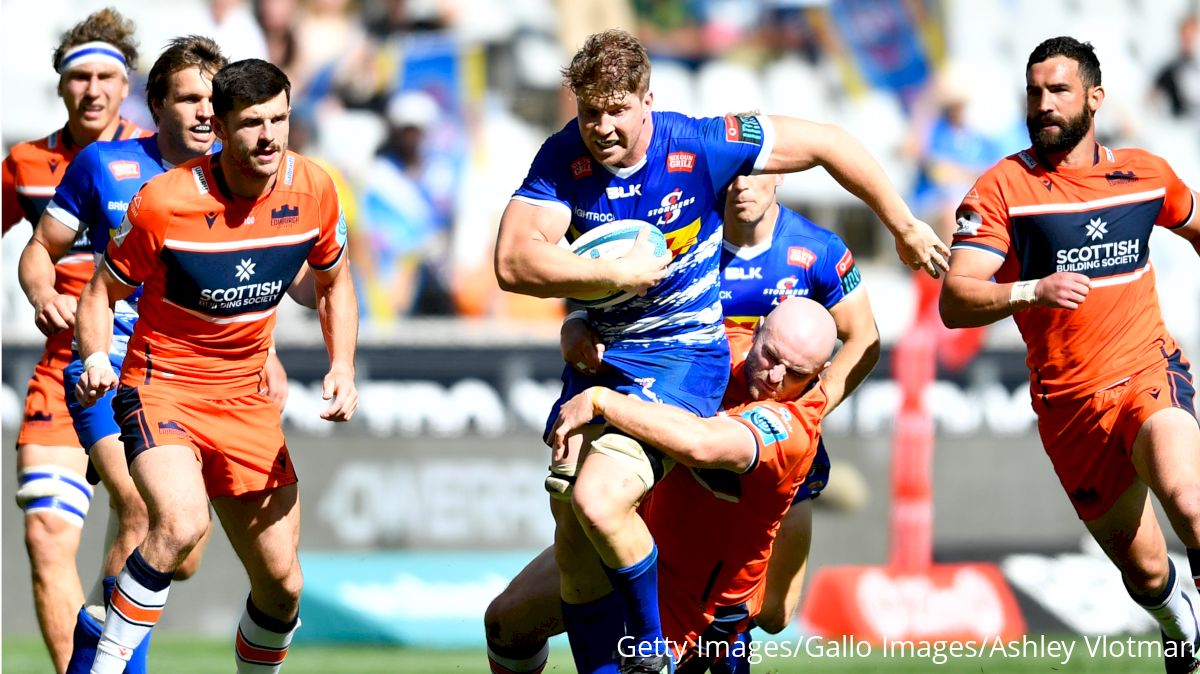
It didn’t take long for the endearing Evan Roos to emit a mischievous grin when he pulled up a balcony chair to shoot the breeze on a sunny South African morning with RugbyPass.
Asked if the sign on an internal wall at a Stellenbosch coffee shop perfectly summed him up – Be a badass with a lekker ass – he quipped: “I would like to think so.” Then came the smile. “No, I’m joking.”
A badass was how Roos was depicted all that week following a yellow-card incident against Benetton at the nearby Danie Craven Stadium.
Showing his dirty side was the allegation. He didn’t agree.
“You know what you sign up for when you are in the spotlight,” he said. “People, they believe you, don’t believe you. Some people will love you, some will hate you.
“Like, what happened wasn’t intentional. I was just trying to get up and get back into play. I did chat to the (Benetton) flank afterwards and said sorry about it. It wasn’t my intention at all to do that whatsoever. It is rugby, so sometimes things happen so quickly, and you don’t realize what happened, so yeah, we had a chat after, and I said sorry.”
Off-the-ball antics aren’t the only topic where critics negatively stir the Roos pot.
Take World Cup winner Duane Vermeulen, the veteran Springboks No 8. When we spoke, the map to this year’s URC final had the Stormers, the defending champions, touted for a semifinal trip to Ulster.
No more.
Connacht’s upset win in Belfast scratched that putative Roos versus Vermeulen head-to-head matchup next weekend four months after a Vermeulen crocodile roll cost the 23-year-old three months of his season due to an injured knee.
Roos doesn’t fathom the fuss his supposed rivalry with the elder statesman of the Springboks back row generates.
“Me and Duane compete for the same position, but we chat a lot,” Roos said. “He was asking when was I back playing again, and when he saw my name on the team sheet against Munster, he told me, ‘good luck.’ I also chatted with him saying, ‘good luck with the knockout stages’ because we might play against each other if things work out.
"After I was injured at Ulster, we sat down in the lounge and had a beer. I sat with him, his wife and their children, and I played with them. Obviously, the media wants to create the sensation of us two competing, and I always tell people it is not true.
“It is always the first question people ask me, and it can get quite irritating. I just tell them, ‘No, we’re good mates.’ We are very good with each other. I mean, I looked up to him from a young age. There is no hate or anything between us. Just respect.”
We’ll have more anon about Roos and his grand Springboks ambitions, but first things first: Stellenbosch, load shedding, Freedom Day and long hair, left-field topics that help decipher the breezy youngster’s persona a bit better than what is caustically published on social media.
Rather than hang out in the bright lights of Cape Town, home is a university town 50 kilometers inland, a place that oozes charm and charisma with its many ancient buildings.
“It’s beautiful that they keep it,” Roos said. “A lot of these buildings in Stellenbosch are historical, and so they have to be kept. They have character and it’s home.
“Stellenbosch is beautiful, the scenery and farms around it, but I’m moving into Town next year. Sometimes the travel can get a bit long. It can be an hour if the traffic is bad, but the traffic from Town to where we train is nothing.
“I’m looking for a nice spot in the Sea Point area next year. My friend who stays with me in Stellenbosch is finishing up his studies this year, so I won’t have anyone to live with here, and I thought it was a good time to stay in Town – but I will move back.”
A daily facet of South African life is having the electricity supply purposely cut off at various stages due to shortages. For example, on successive nights during the visit by RugbyPass for the Sevens Challenger Series, the power went off at 10 p.m. local time, just when the second halves of live TV football games were about to start.
How does Roos cope with the restrictions?
“I have installed a system in my place, so everything runs when it is off,” he said. “It’s just things that heat up, so like my microwave and my stove and what else, my kettle and toaster can’t work. But the rest of house, the WIFI, TV, lights, geyser, everything works. Well, the geyser is solar power, hence load shedding.
“So, I’m not that affected by it where I live, but if you are out in town, it is a hassle. Not just from a comfort point of view, but economically, all these people have to spend so much money on generators and then diesel for the generators – and diesel is also expensive. It’s just a snowball effect.”
It was April 28, the day after the latest Freedom Day celebrated the 29th anniversary of the first democratic elections in South Africa in 1994, when Roos stopped by for coffee.
As a member of the ‘born free’ generation, does the significance of the public holiday strike a chord?
“That’s the thing, we were born in the new South Africa, but it’s important to remember these things, celebrate it and walk forward with a future and work together as one country and stick together,” he said. “Obviously, we have our problems and stuff, but if there is one positive person, they can make a difference, and if a collective of them can get together, they can make a big difference. It’s nice to celebrate these things and to remember them as well.”
Just like the importance of rugby.
“Coach Rassie (Erasmus) says it a lot – rugby is the only thing that works in this country,” Roos said. “I mean, we have load shedding, a problem with our government and all those things. To have something that works makes it [rugby] even more special.
“It is not even the Springboks. Just playing for the Stormers, Bulls, Lions, people are excited for the weekend. They give up time and money to buy tickets to go watch a game at a stadium, and it brings their joy for the week. It is a big responsibility, but it is a nice responsibility that we are responsible for people’s happiness for another week.”
An example of the grip was evident a couple of days earlier when Roos and RugbyPass, unbeknownst to each other at the time, stood on heavily packed sidelines watching five grassroots college matches enthusiastically unfold simultaneously at Maties University.
“I was there on Wednesday,” Roos said. “My housemate, we played schools first team together. He plays res [resident’s] rugby, and it was his first match in about three years, so I went to go and watch him. The number of people that watch res rugby, it’s insane. Especially the boys that are in res, they all put on their colors. Rugby is all over this country, from 7 year olds to the international level.”
Despite this intensity, Roos refuses to allow the game to consume him.
“I’m a very chilled guy, I likes coffee, I enjoy other people’s company,” he said. “A lot of people have ways to express love, I just like spending time with people and sitting having a coffee, talking about things, just catching up and chatting a lot of nonsense. It’s good quality time spent.
“I love being active, I love the gym, but not just because of me playing rugby. I just love hiking outside, walking in the woods, being with my family. I have two or three really close friends and my family. I have a little brother, so I try and be a good example for him.
“He is 11 years old, also loves rugby, and I have got a sister who is 20, and she also studies in Stellenbosch, so we spend quite a lot of time together as well,” he explained before referencing his unmistakable shaggy-looking mop. “I get too lazy to go to the barber, and my mum likes my hair longer. I have a few female friends, and I asked innocently, ‘What do you reckon, long hair, short hair?’ All of them said long hair ,so I said ‘cool.’ That works for me, and people kind of got to know me with long hair.”
Let’s discuss some other Roos trivia.
Apparently, being a security guard or a rapper was what he aspired to be growing up.
“That is absolutely true,” he admitted. “We lived in Pretoria when I was younger. We lived on an estate with security guards, and they were so nice with the children. They also had bicycles, and I would cycle with them on my bicycle to school.
“They made sure everything was fine and you were safe. They played soccer with you and stuff. I was thinking to myself, ‘It looks fun to be a security guard. You get to ride on a bicycle all day and play soccer in a park, and you’re a nice person. It looks cool.’
“There was also a takeout place called Steers on our estate, and they always had the MTV channel on with all these rappers. I’d look at these rappers and think they were quite cool. All the other children said politicians, doctors, lawyers, physicists, all those things, but I wanted to be a rapper or a security guard.”
Even youths’ rugby in Pretoria had its curveball.
“I always played 8, but I remember grade six, we had a bunch of good loose forwards, and the coach still wanted to play me, so he put me at hooker,” Roos recalled. “It wasn’t bad [his throw]. A few back balls with a little move through the middle, but I can’t throw anymore. I have a lot of respect for the hooker trying to throw it in. It’s tough.”
Just like Roos’ maturation in the sport.
There were some season-ruining injuries before he hit the big-time at nearby Paarl Boys High in his senior year.
Then came life at the Sharks, which culminated in him nearly quitting playing before a loan move to the Stormers became the game-changing accelerator.
“I’ll absolutely talk about it,” he said about his flirtation with calling it quits. “My first year playing age-group rugby, 21s and stuff, everything worked, and I got two senior Currie Cup caps. Then lockdown came. Afterward, I was in the group, but I wasn’t playing and then fell out of the group and was in a group of four, five guys just doing preseason, and it’s tough.
🙌 Evan Roos goes over for the try that levels the scores at 10-10 with 34 minutes to go in the @Vodacom #URC Grand Final. @URCOfficial_RSA pic.twitter.com/UmNoQm2wIx
— Springboks (@Springboks) June 18, 2022
“You are with your family for a few months of hard lockdown at home, and then going back to Durban, a lot of the guys there are locals, so at least they can go to their families, whereas I would have to sit there (in isolation).
“You wanted to play rugby, and I wasn’t playing. It just got to a point where I wasn’t happy off the field either. I was studying online, since you couldn’t go to a campus, where you could meet new people.”
How long did the ‘quit’ mood last?
“It was a lingering thing, a good five, six months,” Roos said. “I lived with a guy who was playing a bit, and I wasn’t. It was irritating. He was going to games, and I’m sitting at home, going to gym and playing PlayStation or going bodyboarding, because that was all I could do.
“At first, I felt ‘you’re a sissy, and you’re just giving up and stuff,’ but it wasn’t that. It was just the feeling I had and the situation I was in. Nothing against Durban. I loved the Sharks, and the people at the Sharks were amazing but in general, Durban people are not my people. I’m happy to be home.”
So how did the life-affirming gamble take root?
“I just called my parents one day and said listen, ‘I do love rugby, but I don’t love it so much, I’m not happy being here.’ I would have been happy to just play Varsity Cup. I was prepared to do that just to be back home, but luckily, the Stormers gave me a chance. John Dobson didn’t know me. Dawie Snyman knew me from school and was a big factor in getting me to stay on (in rugby). We have a good connection. He is our outside coach, and I love the way he does things. We clicked quickly.”
That was special. Thanks to all of you who came out to support us. We’ll see you all back here at DHL Stadium next weekend for the @Vodacom #URC semifinal. #STOvBUL #iamastormer #dhldelivers #UnitedWeRise pic.twitter.com/TNbnrTyS2z
— DHL Stormers (@THESTORMERS) May 6, 2023
Now a star that glitters, how vivid are those dark-day memories?
“I think about it a lot,” Roos said. “I could have just stopped, but the one thought that also kept me playing was I would be so mad at myself, I would regret it so much if I didn’t try again. My parents just said, ‘Let’s not just give up, let’s try to find a way to get you back home,’ and I’m happy we did, that I was going to go down fighting.
“I was a talent at school and played well at 21s, but I just didn’t fit into the way they [Sharks] were playing, and I definitely found my identity and way of playing at the Stormers and Province. It was a lightbulb moment. I got this new image of how I can play rugby, and they gave me the freedom to do it.
“They have systems in place but that is the fun thing about being at the Stormers, they give you room to express yourself and it’s within the system that works. I really started enjoying rugby and thinking very differently about it. Before, I was thinking very systematically, do this, do that. It’s now more experimental and trying new things. I enjoy that a lot.
“I told my parents the other day it’s crazy how everything just exponentially grew from where I was thinking of stopping. I had called my best friend and said, ‘I don’t think I want to play rugby anymore. If this is it, it’s not that fun.’ But a big person I don’t usually talk about is Sean Everitt, who was the head coach.
“Me and him were close. We had coffee like we are now, just talked about everything, how I felt. He heard I wasn’t happy off the field and would rather me be with my family. He was very happy to let me go because he didn’t want to keep me against my will because I wouldn’t be happy. I’m very thankful to him. I also met guys like Jean de Villiers and asked their opinion, and they also helped me through. There are a lot of people who helped me get back home, and I will be forever thankful.”
Making the Springboks’ Rugby World Cup squad is now the aim.
Roos vividly remembers the 2019 success.
“I was at the Sharks, and they opened this beach bar in the stadium,” he said. “I was in the academy, so all of us had beers from 9 o’clock (in the morning), and because our rooms were in the stadium, we just walked across the field to the bar. I was sitting watching the game, and it was cool being with your mates, but it looked much cooler being there. I said, ‘I know it’s tough, but it may be possible next time this happens I want to be there – not watching it on the TV.’”
Well done Evan Roos, that’s how you react to dissapoinment and make sure you cant be ignored !
— Rassie Erasmus (@RassieRugby) April 22, 2022
Roos’ fingers are crossed for selection.
“I would say there is a bigger plan in place, and if that is what is planned for me, it will be such an awesome honor, an amazing thing to be a part of,” he said. “If it’s not, I know it happens for a reason, but I’m still going to give it my best shot and stay as competitive as I can to make that group.”
It was April last year when a tweet from Erasmus revealed he was making waves.
“Well done Evan Roos, that’s how you react to disappointment and make sure you can’t be ignored,” tweeted the SA Rugby director after the No. 8 shone at URC level with the Stormers.
How did he react to that social media surprise?
“A big smile,” Roos said. “In our changing room, the No. 8 and the 16 sit next to each other, and we [Roos and JJ Kotze] are like best friends. I showed him the message, and he was like, ‘Wow, that’s quite cool.’ It’s weird, because I didn’t have a lot to do with coach Rassie before that, so it was a big thing. He didn’t tag me, and I didn’t know what to do, but I took a screenshot and sent it to my dad.”
Three caps followed, exposure that culminated in a Twickenham start versus England and the drama of an airport collapse and hospitalization in Johannesburg on his way home.
“It was a very eventful week,” beamed Roos. “First of all, dad was there, which was very cool. He has a Dutch passport, so could quickly fly over, and my grandparents, who stay in the Netherlands, they came as well. It’s my dad’s father, and he is a massive rugby supporter, a massive Province supporter, and it was so special for him to be there. I hadn’t seen him in four years.
“I broke my rib in the first 10 minutes. I felt it pop, but I said to myself, ‘There is no way I can go off.’ It’s like this sixth sense. If you go off for an injury, you can’t go back on as a sub. I played through it, and then Siya (Kolisi) got a HIA with 10 or 15 minutes left, and I had to go back on.
“Looking back, it’s not a lot that you play against England at Twickenham. I wanted to stay on, but just the travel afterwards, just all the excitement of the week, my body said, ‘I’ll just rest for a second.’ Luckily, it wasn’t serious. It was just basically a mix of painkillers, and I didn’t eat much on the plane. I was just basically sleeping the whole way, and I think my body just needed a reset.”
A secondary reset followed with his January knee injury but, having since enjoyed the silver lining of quality family and friends time due to the unexpected layoff, he now is back in harness as Stormers’ No. 8 and surprising himself with his fitness.
“I thought leg injury, s***, it’s tough getting your fitness back,” he said. “I got injured the Friday in Ulster, went for scans the Monday, and started rehab treatment that same day. I immediately started upper body cardio five days a week until I could start to bike, and I would bike every day, so I could start running.
“I didn’t want to lose my engine. At some stages I am tired, but I’m surprised. I thought I would be dead, but I’m keeping up, which I’m happy about, and the confidence in my knee, I don’t think about it when I play. They rehabbed me so well it doesn’t feel like I had an injury. I was worried was it going to be the same as before, but they looked after it well. It’s fine again. Thankfully so.”
Related Content
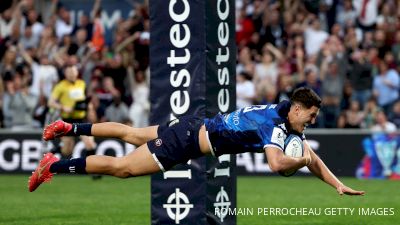 Investec Champions Cup Round Of 16: Sportsmanship, Tries And New Faces
Investec Champions Cup Round Of 16: Sportsmanship, Tries And New FacesApr 8, 2024
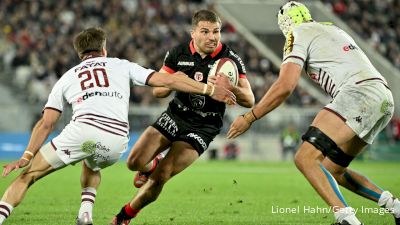 Investec Champions Cup Rugby Round Of 16 Recap And News
Investec Champions Cup Rugby Round Of 16 Recap And NewsApr 6, 2024
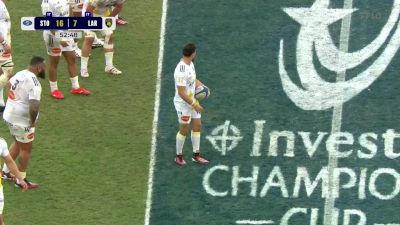 Replay: DHL Stormers vs Stade Rochelais | Apr 6 @ 2 PM
Replay: DHL Stormers vs Stade Rochelais | Apr 6 @ 2 PMApr 6, 2024
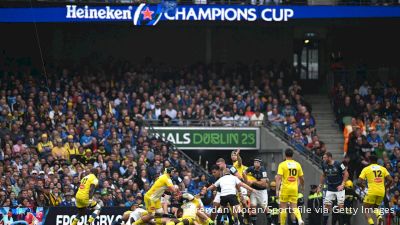 La Rochelle Rugby, DHL Stormer Lineups In Investec Champions Cup
La Rochelle Rugby, DHL Stormer Lineups In Investec Champions CupApr 6, 2024
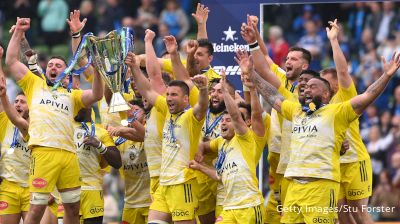 How To Watch DHL Stormers Vs. La Rochelle Rugby In Investec Champions Cup
How To Watch DHL Stormers Vs. La Rochelle Rugby In Investec Champions CupApr 6, 2024
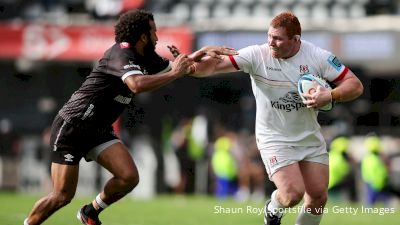 Springbok Star Steven Kitshoff Returns To DHL Stormers Ahead Of Next Season
Springbok Star Steven Kitshoff Returns To DHL Stormers Ahead Of Next SeasonApr 5, 2024
 Investec Champions Cup: Key Storylines For Knockout Round Of 16
Investec Champions Cup: Key Storylines For Knockout Round Of 16Apr 5, 2024
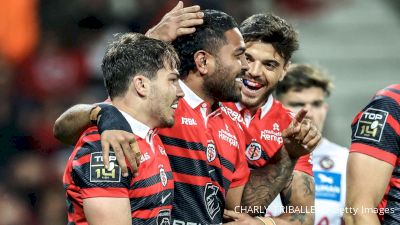 Where To Watch European Rugby Champions Cup; Investec Cup 2024 Fixtures
Where To Watch European Rugby Champions Cup; Investec Cup 2024 FixturesApr 5, 2024
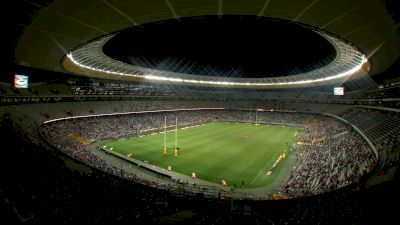 Replay: DHL Stormers vs Ulster | Mar 30 @ 5 PM
Replay: DHL Stormers vs Ulster | Mar 30 @ 5 PMMar 30, 2024